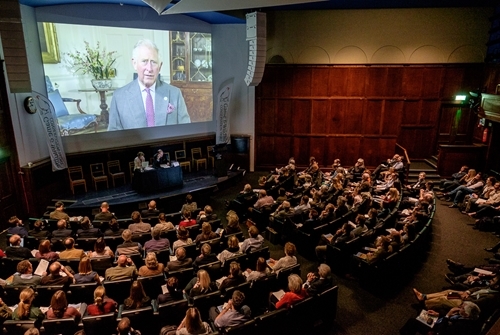
THE importance of farmers working together to nurture wildlife on their farms was highlighted at a hugely-successful national conference organised by the Game & Wildlife Conservation Trust (GWCT) in conjunction with Natural England and held in the Royal Geographical Society, London, on 12 October.
The well-attended event, sponsored by the Ernest Cook Trust, which attracted more than 300 people, saw farmers, land managers, gamekeepers, facilitators, advisors and policy makers learn more about the Farmer Cluster initiative which was designed by Teresa Dent, CBE, CEO of GWCT.
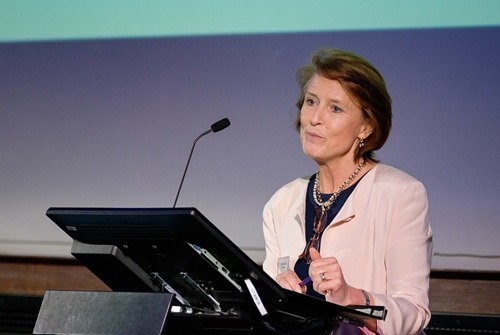
Farmer Clusters are groups of farmers who work together to decide which threatened species to conserve on their farms. This is a scheme that is expanding rapidly. Farmers are increasingly supportive of this approach as it is led by them. They are then supported by conservation experts who offer advice and guidance on how to achieve their conservation goals.
The conference had an action-packed agenda and you can view the slides from each speaker's presentation here.
Following the welcome from chairman of Natural England, Andrew Sells, who chaired the morning’s programme, a video message from HRH The Prince of Wales, Prince Charles was presented, which you can watch here:
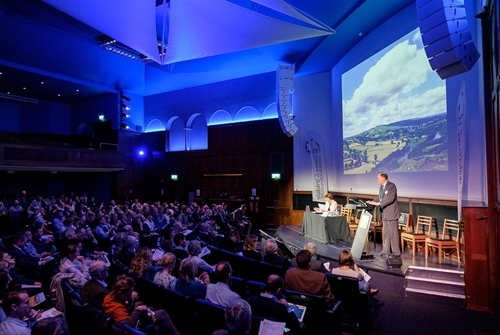
Sir John Lawton gave the keynote address expressing how the Farmer Cluster initiative aims to be ‘bigger, better and more joined up’ than anything which has happened before.
He said: “There’s no need for a pointless argument between what’s better for conservation, land sharing or rewilding. We’re all rewilding, we should think of it as a process where we bring back as much as we can, where we can.”
Other speakers, including Hampshire farmer Rob Shepherd, explained how involving the entire family in his conservation decisions led to him making space for adders on his land as his 11-year-old son loved reptiles. As he pointed out, “agriculture shapes the landscape but not at the cost of certain species”.
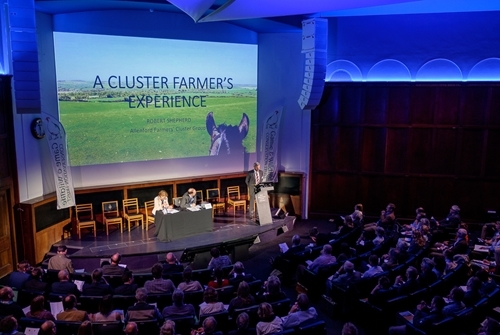
Involving the wider farming family in this initiative was stressed by several speakers and seen as hugely important in making this conservation project work.
The willingness of farmers to engage with conservation was noted by Andrew Paul, Suffolk farmer and facilitator, who spoke about the Sandland’s project and recalled how he approached 60 farmers to get on-board, and only one failed to appreciate the concept.
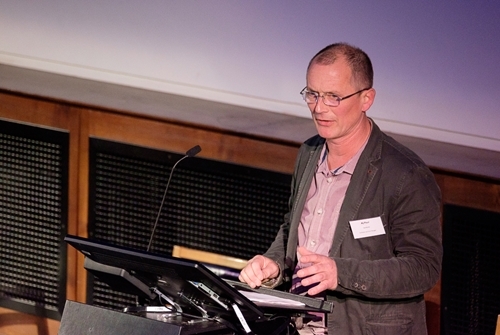
Additionally, he mentioned that one farmer in the scheme saw stone curlew return to his land after a 40-year decline.
Such conservation successes will be even more notable and widespread, predicted Tara Challoner of the Yorkshire Wildlife Trust, when not only farmers but also farm managers, gamekeepers and estate owners are also fully engaged in conservation efforts on farmland.
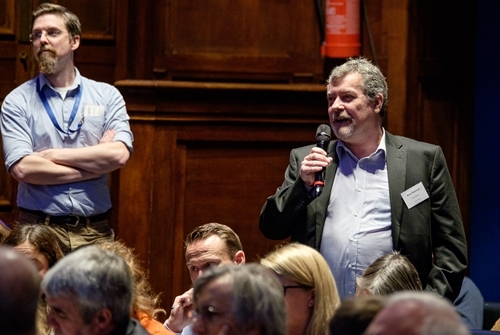
The day was summed up perfectly by the closing address from Mrs Dent, who asked the question that all farmers interested in joining a cluster need to ask themselves “What wildlife do I want on my farm?” and then all they need to do is take the steps to make it happen by joining a farmer cluster.
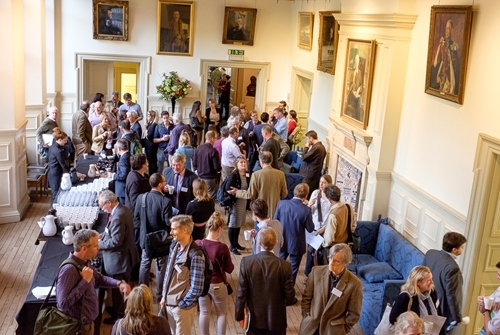
To view the slides from the day and to watch HRH Prince of Wales video, click here
Notes to editors
The Game & Wildlife Conservation Trust – providing research-led conservation for a thriving countryside. The GWCT is an independent wildlife conservation charity which has carried out scientific research into Britain’s game and wildlife since the 1930s. We advise farmers and landowners on improving wildlife habitats. We employ more than 60 post-doctoral scientists and other research staff with expertise in areas such as birds, insects, mammals, farming, fish and statistics. We undertake our own research as well as projects funded by contract and grant-aid from government and private bodies.
For information, contact:
Eleanor Williams
Telephone: 07592 025476
Email: press@gwct.org.uk